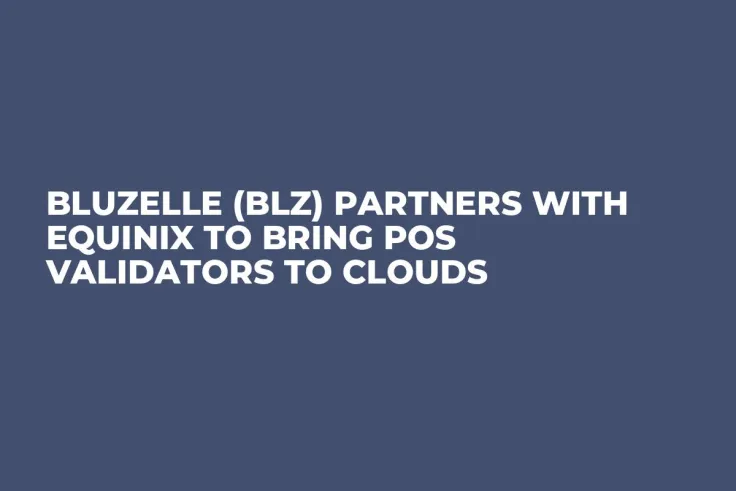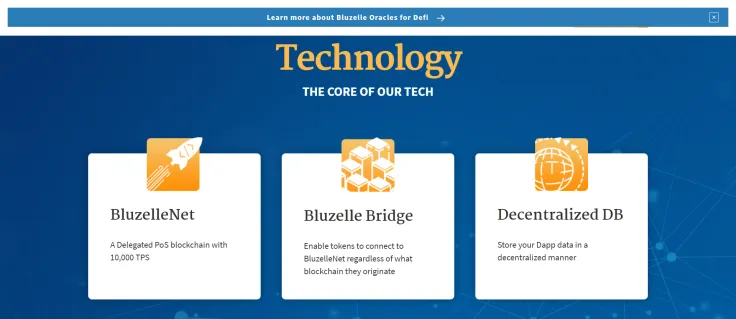
Bluzelle (BLZ), a decentralized database provider for Web3, has shared the details of its partnership with top-tier digital infrastructure provider Equinix. The new collaboration will significantly improve the experience of setting up validation nodes on cloud-based computational systems.
Bringing PoS nodes to the cloud
According to a press release shared with U.Today, Bluzelle (BLZ) has entered a long-term partnership with Equinix, a NASDAQ-listed infrastructure provider. Within this framework, the two companies will deliver a system that allows usage of cloud providers for the operation of proof of stake (PoS) system validators.

The Equinix Smartkey concept will be a pivotal element of the new system. This hardware security module (HSM) solution will ensure the integrity and security of keys while running the validator's node.
Bluzelle's module connects the Tendermint Key Management System (TMKMS) to Smartkey. Thus, the latter will act as an External Key Manager (EKM) for Google Cloud and other similar platforms.
Anthony Ho, product management director of Equinix Asia-Pacific, stresses that this is the first-ever attempt to use Smartkey tools for decentralized computational systems:
We are excited that blockchain validators will discover all the benefits of our key management solution thanks to the collaboration with Bluzelle.
During the entire procedure of validation, the node owner will retain control over his/her keys.
Why does this matter?
Previously, the utilization of HSM for key storage was inaccessible for small and medium-sized staking and validation entities. The new collaboration will provide them with unparalelled opprtunities, so the whole process of validation will become more decentralized.
Pavel Bains, cofounder and CEO of Bluzelle, outlines the crucial importance of this collaboration for cutting-edge proof of stake (PoS) initiatives:
For security reasons, professional validators generally use private server infrastructure backed by HSMs that hold critical data like the private keys. This level of security is generally inaccessible to all but the largest and most well-funded validators. While on some networks, validators are meant to be professional enterprises, blockchains like Ethereum 2.0 make a point in opening validation to as many enthusiasts as possible.
The initial implementation of the new system is designed for Cosmos (ATOM) and Tendermint-based systems, while releases for Ethereum (ETH) and other networks are coming soon.
 Vladislav Sopov
Vladislav Sopov Dan Burgin
Dan Burgin